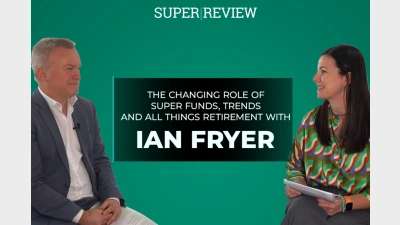This year may have been a busy one for the Australian superannuation industry but 2019 will be both busier and more meaningful.
Why? Because a Federal Election is scheduled to be called within months, the Federal Parliament will sit only briefly, if at all, and much of the Coalition Government’s superannuation agenda will be placed on hold, perhaps never to be re-emerge in its current form.
At the time of writing the Parliament had only a few more sitting days before the Christmas/New Year close-down and the Government had still yet to negotiate the passage of five superannuation-related bills:
- Protecting Your Superannuation Package
- Improving Accountability and Member Outcomes in Superannuation Measures No. 1 and No. 2, and the
- Superannuation Guarantee compliance measures – including the SG integrity package and the SG amnesty
- Treasury Laws Amendment Bill No. 4
Of those pieces of legislation, only the Superannuation Guarantee compliance measures was assured reasonable levels of bipartisan support, while there were large question-marks handing over the Protecting Your Superannuation Package because of the manner in which it threatens to impact the viability of insurance inside superannuation.
At the same time, of course, the Productivity Commission remains on course to deliver its final report on Superannuation Competitiveness and Efficiency, but it is a report which may well end up being overtaken by political events and the reality of partisan policy agendas.
What will not be altered by a change of Government, however, is the substantial implementation of the findings of the Royal Commission into Misconduct in the Banking, Superannuation and Financial Services Industry. There exists a strong bipartisan commit to implementing whatever the Commissioner, Kenneth Hayne, recommends.
At the time of going to press, the Royal Commission had finished it final round of hearings, with Hayne scheduled to publish his findings and recommendations in February. Hayne’s final report will distinguish the official winners and losers from the exercise but the unofficial losers have certainly been the banks and the superannuation funds sitting within their vertically-integrated structures.
On the face of it, industry (“profit to members”) superannuation funds have emerged relatively unscathed but may yet find themselves the subject of specific criticism with respect to their expenditure of members’ funds and enjoined in the suite of changes Hayne targets towards retail funds.
Superannuation was again the subject of criticism this year, not least from the Grattan Institute, and while the positive investment returns generated in another challenging calendar year should serve as an answer to many of those critics, it probably will not suffice. The critics will continue to pursue their agendas.
The bottom line, however, is that Australia has a world-class superannuation system which serves to relieve much pressure on the public purse and without which the nation would be the poorer.
This is the last print edition of Super Review for 2018. We wish all our readers a Merry Christmas and a Happy and Prosperous New Year.











